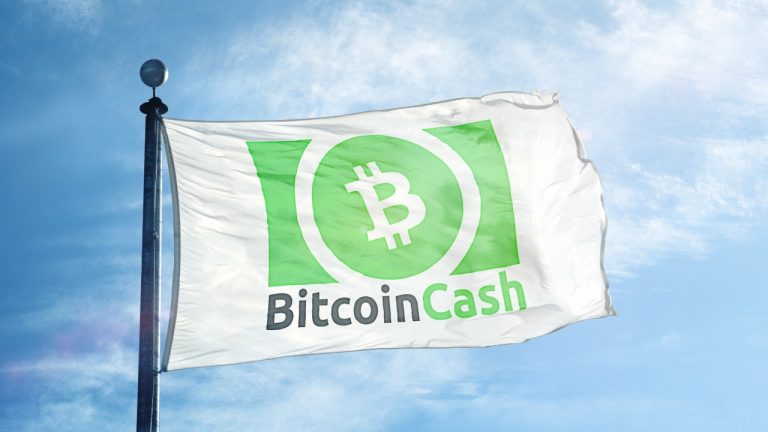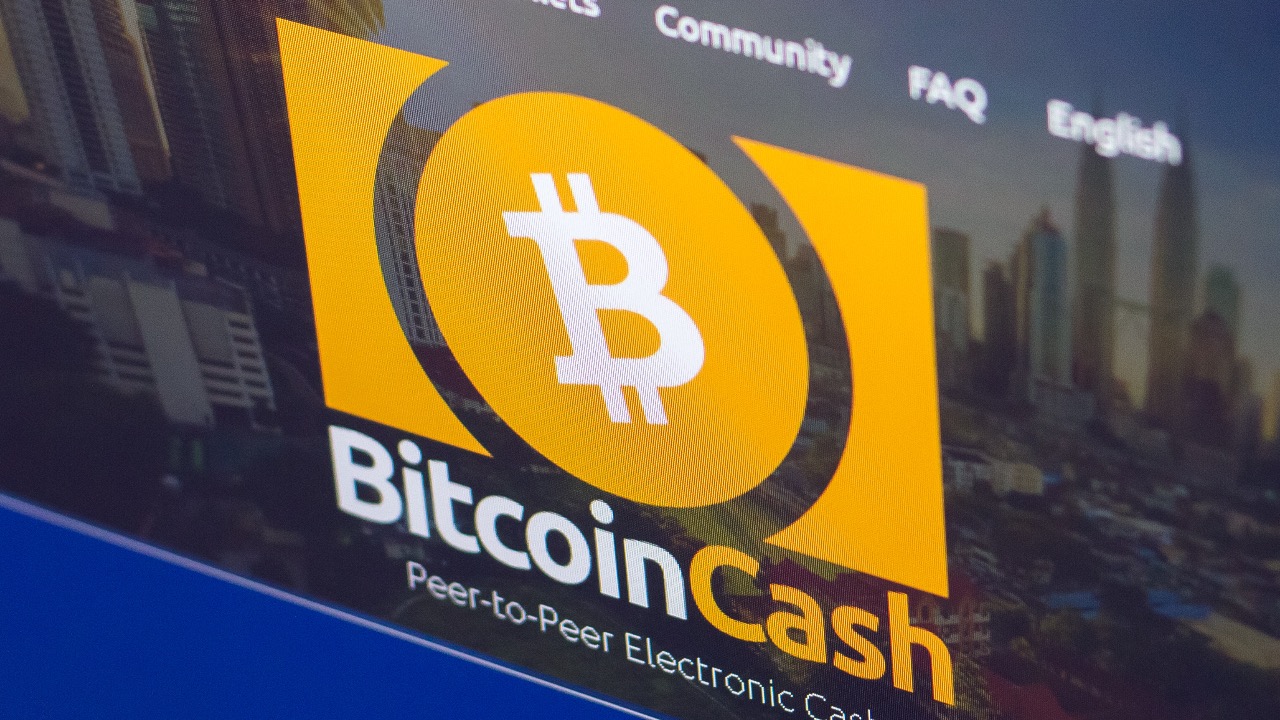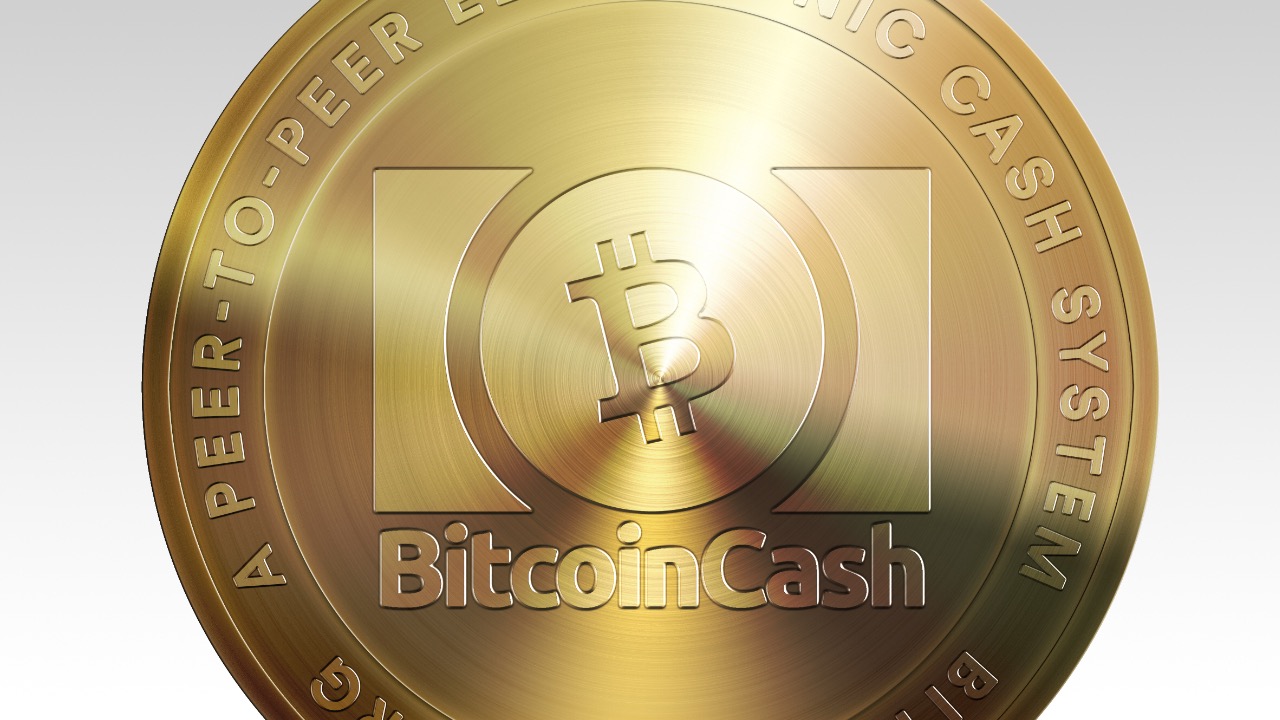Three Years In: A Bitcoin Cash Update From One of Its Founders
Publikováno: 8.12.2020
 It’s been over 3 years since August 1, 2017, the day Bitcoin Cash was born. I know because I was there and part of the loosely knit ‘team’ that launched the Bitcoin Cash project. Now, after some time has passed and events have unfolded, I am excited to give you an update on where we […]
It’s been over 3 years since August 1, 2017, the day Bitcoin Cash was born. I know because I was there and part of the loosely knit ‘team’ that launched the Bitcoin Cash project. Now, after some time has passed and events have unfolded, I am excited to give you an update on where we […]
The post Three Years In: A Bitcoin Cash Update From One of Its Founders appeared first on Bitcoin News.

It’s been over 3 years since August 1, 2017, the day Bitcoin Cash was born. I know because I was there and part of the loosely knit ‘team’ that launched the Bitcoin Cash project. Now, after some time has passed and events have unfolded, I am excited to give you an update on where we are today.
What is Bitcoin Cash All About?
It’s no secret that I love Bitcoin Cash, so you’ll obviously be getting a positively biased report. (Although I’ll also give you my thoughts on what we need to improve on).
For those not intimately familiar with the project, I would like to take a moment and briefly explain what Bitcoin Cash is, and where it came from. It’s probably one of the more misunderstood projects in the space.
Bitcoin Cash was born from a contentious fork with BTC, and this event was the culmination of a 4-year debate inside of the Bitcoin community over how to scale the network. The BTC side essentially chose not to scale the network in favor of high miner fees. The BCH side chose instead to scale the blockchain to accommodate more users.

This was a legitimate disagreement and fracturing of the Bitcoin community. Many today are unaware of the real nature of that conflict, and many people have been deliberately or unwittingly fed misinformation about Bitcoin Cash.
“Bitcoin: A Peer-to-Peer Electronic Cash System.” This is the title of the famous Bitcoin whitepaper. And that’s what Bitcoin Cash is all about. The primary reason that Bitcoin Cash came into being was to, in fact, allow Bitcoin to continue as peer to peer cash. BTC no longer works reliably as cash due to congestion and high fees.
Although there are many interesting projects in the cryptosphere, I still believe the killer use case for crypto is actually just being money. Nothing is as compelling and humanitarian as sovereign money (i.e. “peer to peer cash”). This seems to have been forgotten as the transfiguration of BTC from electronic cash to digital gold has altered the culture and mindframe in the space.
Bitcoin Cash Has Overcome Fierce Opposition
(But There’s Still Room for Improvement)
When Bitcoin Cash was born, it was viewed as a legitimate threat to some in the BTC community. The maximalism culture really came to the forefront, as the most ardent BTC believers screamed about how BCH is an attack on Bitcoin! Never mind the fact that weeks earlier, those same people told the big-block proponents to “fork off” if they didn’t like the direction of the project.
There have been strong efforts (no doubt some of them funded) to disparage and damage the reputation of Bitcoin Cash. Admittedly, many of those efforts have been successful, and BCH has earned an unfairly poor reputation in some circles, which is reflected by a depressed price.

BCH is routinely blacklisted from mention in the biggest crypto news websites. (Unless of course, it’s potentially negative news about BCH). It has been relentlessly attacked on social media. It has had exchanges intentionally assign it confusing or inferior ticker symbols (eg. BCHABC or BAB or even bCash instead of BCH).
And yet, Bitcoin Cash is moving forward. Three years later, we are still here, stronger than ever, and spreading peer-to-peer cash around the world.
Granted, overall its price has performed badly during the bear market, and is just now returning to the $300 price it began with. To be fair, there are valid reasons for this. The most obvious is the daily transaction volume on BCH, which has been disappointing. Bitcoin Cash needs to see an uptick in volume if it wants to win. Another reason has been the poor leadership — (although there has been a recent changing of the guards that I’ll get to later!)
BCH is still a top coin by market cap. It inherited everything that made Bitcoin great: a fixed supply, a proven and robust consensus algorithm, a fair Proof-of-Work distribution originating from the genesis block, and of course: fast, cheap, and reliable transactions. Bitcoin Cash continues to focus mainly on the peer-to-peer cash use case, but is also becoming a well-rounded coin with advancements in privacy, tokens, smart contracts, and more.
There’s been an explosion of interest and development within Bitcoin Cash over the past 3 years. Here’s the highlights:
Here’s Just 20 of the Many Exciting Developments Going on in Bitcoin Cash
CashFusion. The most advanced coinjoin protocol ever developed. Providing both privacy and fungibility, CashFusion is a fully decentralized and trustless protocol that operates at the wallet layer. By leaving the base protocol untouched, it also avoids certain regulatory risks.
Simple Ledger Tokens. An entire token system exists on Bitcoin Cash. From stable coins (Tether, USHC), to social tokens (spice), NFTs, and much much more. All with low fees.
Scaling. Independent teams’ engineering efforts are enabling thousands of transactions per second on multiple node implementations. For example, Flowee (just one of several node projects) has been bench-marked to sync that with 11000 transactions per second just last week. There is a scaling testnet (Scalenet) that is full of 250MB blocks.

CheckDataSig. A protocol change to allow external data signatures to be included in a transaction. This enables the operation of oracles, which have a multitude of use cases, along with other possibilities.
Schnorr Signatures. A long sought goal of the Bitcoin project in general, BCH is the first to implement them. They allow more private multi-signature transactions along with batch signature validation and other benefits.
Covenants. A technical innovation that allows Bitcoin script to apply constraints on what the outputs can do. This allows smart contracts like AnyHedge and the Mecenas Last Will.
Merchant Adoption. According to map.bitcoin.com 7,500 + merchants are accepting BCH as payments. Some are major brands such as the Burger King chain in Slovenia. BCH enthusiasts continue to grow adoption. A group called Satoshi’s Angels has raised funds from the community and has launched a worldwide merchant adoption campaign. This is just one of several campaigns.
Bitcoin Cash Meetups. More than 90 BCH meetups have been launched around the world with the BCH meetup support desk that is open 7 days a week, which is run by BCH enthusiasts. Active meetups in some of the cities such as Tokyo and Bangkok are hosting the meetups weekly, supporting the BCH ecosystem by bringing business to the merchants that accept BCH and attracting new members.
Local.Bitcoin.com. Buy or sell Bitcoin Cash with any payment method. Trade peer-to-peer without KYC/AML. Supported by a blind escrow smart contract running on Bitcoin Cash.
Corporate Adoption. In addition to the support of the biggest companies in the industry (Coinbase, Bitpay), Paypal has recently announced the addition of Bitcoin Cash to their platform along with other major cryptocurrencies. There has been increasing demand in the Grayscale Bitcoin Cash trust.
Smart Contract Languages. Bitcoin Script is notoriously difficult to work with due to its obscure stack-oriented structure. High level programming languages like Spedn and Cashscript are now available, empowering developers to pursue permissionless innovation.
Purse.io. Save 5-40% on Amazon using Bitcoin Cash. Other discount programs as well.
Bitcoin Cash Protocol Specification. A huge and important step in professionalizing both protocol and application development.
ASSERT DAA. This difficulty adjustment algorithm keeps block times stable and minimizes oscillations in the multichain SHA-256 ecosystem.
Flipstarter – An awesome crowdfunding tool. Submit funds to a smart contract that releases only when the target amount is pledged.
Decentralized Development. We have recently demonstrated that no one is in charge of Bitcoin Cash, not even its developers. Six independent node teams collaborate in a distributed manner.
BCH Powered Websites – With low fees and fast reliable transactions, BCH powers a growing ecosystem of valuable websites like EatBCH, a Bitcoin Cash driven charity that feeds people in Venezuela and South Sudan, or Venezuelaworkers, a freelancing marketplace specializing in crypto payments in the Venezuelan market.
Read.Cash – a content publishing platform with built-in tipping in Bitcoin Cash. It has thousands of contributors and articles and continues to grow.
Defi on Bitcoin Cash – The AnyHedge protocol allows synthetic derivatives and gives the ability to create new markets so users can instantly take a position on any asset with a price. We’ve leveraged the power of smart contracts on Bitcoin Cash to usher in a new era of trustless and non-custodial trading.
Token Extensions – Beyond the rich SLP ecosystem, further innovations keep happening. For example, a dividend tool that allows you to pay token holders. Imagine the possibilities. A “post office” protocol that allows you to send and receive tokens without any BCH “gas” for fees. Atomic swaps for tokens. Mineable tokens. The permissionless innovation never seems to let up.
What’s Up With All the Forking?
In addition to BCH forking away from BTC (because of BTC’s high fees and congestion), there were 2 other major forks from Bitcoin Cash since 2017.

In 2018, a corporate conglomerate consisting of nChain, Coingeek, and others sought to assert control over the Bitcoin Cash network in an attempt to become the new leaders of Bitcoin Cash protocol development. Those people provided spurious reasoning for their technical decisions, particularly their opposition to protocol enhancements that had been previously agreed to. In addition, their de facto thought leader, Craig Wright, was exposed plagiarizing multiple academic papers. Ultimately, they failed and were forced off the network and onto their own blockchain (BSV).
In 2020, another fork occurred. Surprisingly, the aggressor was none other than Amaury Sechet, the developer who forked BCH away from BTC to begin with! But the pattern was similar in that he attempted to strongarm control over Bitcoin Cash without the consensus of the community. As a result, miners and others in the community decided to use alternate software, and forced them off the network onto their own chain (BCHA).
Fortunately, this latest fork was not nearly as damaging as the first one in terms of price. In fact, BCH pumped heavily about a week after booting the lead development team. What was remarkable about the 2020 fork is that it is one of very few instances in the entire history of cryptocurrency where a lead development team was ousted.
This latest fork is quite bullish for Bitcoin Cash, in my opinion. It demonstrates in practice that protocol development can in fact be decentralized, and that no one person or group can control Bitcoin Cash.
The Future is Bright
Bitcoin Cash has retained its multi billion dollar market cap over several years and is here to stay. It’s a flagship cryptocurrency with solid fundamentals.
I have nothing but heaps of praise for the community of Bitcoin Cash. We are focused on using Bitcoin as money — as peer to peer cash. The clarity of our vision keeps us on track. Bitcoin Cash is stronger now than it was three years ago, and we continue to learn, build, grow, and evolve.
This is an Op-ed. Read disclaimer below. Learn how to reach our audience here.
The post Three Years In: A Bitcoin Cash Update From One of Its Founders appeared first on Bitcoin News.